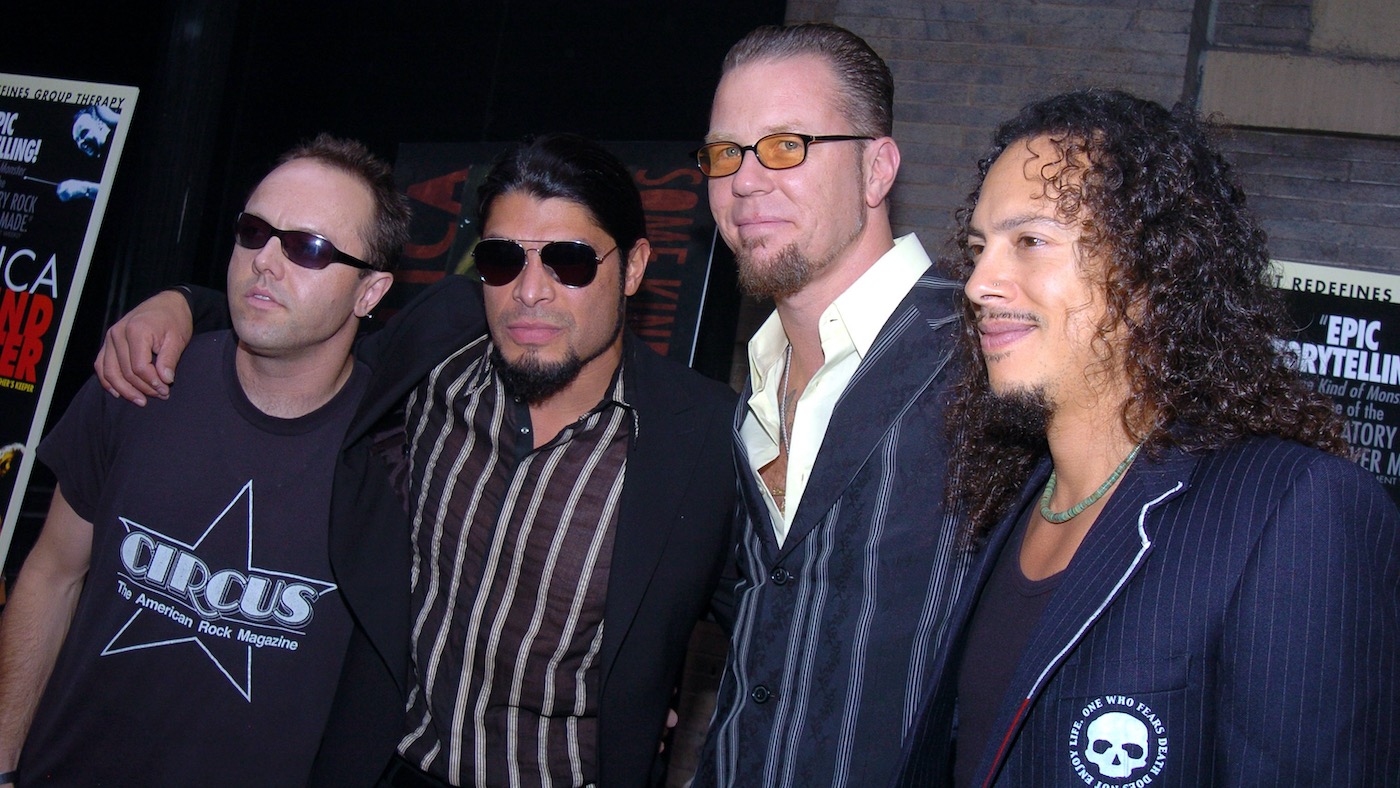Metallica watched the first screening of their 2004 documentary Some Kind Of Monster in total silence, and initially hated the film so much that they debated locking it away forever in order that no-one else would ever see it.
That’s the recollection of film-maker Joe Berlinger, who co-directed the award-winning documentary, with the late Bruce Sinofsky.
Berlinger speaks about the documentary at length in a new episode of the Greatest Music Of All Time podcast, revealing that Metallica and their management company, Q Prime, were given their first look at the documentary, which chronicles the troubled birth of the St. Anger album, bassist Jason Newsted’s exit from the band, Rob Trujillo’s recruitment, and James Hetfield’s lengthy stay in rehab, in September 2003, in a private screening room at Star Wars film-maker George Lucas’ Skywalker Ranch.
“Bruce and I are really nervous, because they haven’t seen anything, and there’s some raw honesty in the film,” Berlinger recalls. “We have a screening, and each band member is in a different corner of this big screening room, and the management is kind of up in the back, huddled in the back.”
“It’s a longer cut. The movie was ultimately, I think, two hours and 20 minutes. This was probably a three-hour-and-15-minute rough cut, because we wanted everything in there. We knew we had more editing to do, but we wanted to know if any scenes were gonna trouble them. We were basically looking for their blessing, which is a very precarious position for a filmmaker to be in.”
“So, the movie plays. It’s a three-hours-plus screening. [There was] literally not a peep through the whole screening — not a laugh, not a moment of recognition — just total silence. And it wasn’t feeling good.”
Post-screening, the film-makers, the band and their management team returned to Metallica HQ in San Rafael, California, to discuss what they had just viewed. Berlinger remembers drummer Lars Ulrich being “pretty chill”, but others in the organisation were genuinely concerned about potential negative feedback, and started requesting that scene after scene be dropped or re-edited, much to the director’s frustration.
Ultimately, as Berlinger recalls, it was James Hetfield who stepped up and said he would give his blessing to whatever cut of the film Berlinger and Sinofsky chose to present
“He said, ‘Look, it’s painful to watch. But you guys did exactly what you said you would do. It’s an honest, raw, truthful portrait of what we went through. I’m not sure I ever wanna look at it again, but we either treat this movie like Cocksucker Blues [the infamous unreleased documentary chronicling The Rolling Stones’ 1972 American tour] and lock it away in the drawer and nobody gets to see it, or we let these guys make the film they wanna [make]. We can’t sit here and tell them what scenes to cut and put in and take out or whatever. Let them make the film they wanna make. And I’m good with that.’ And he walked out of the room.”
“And Lars looked at me and gave me a ‘good job’ [look]; he gave me great affirmation in that look, like, ‘You got your film’.”
Lars Ulrich would later describe the unflinchingly raw documentary as “a mindfuck.”
Reviewing the tenth anniversary edition of film in 2015, Classic Rock’s Jon Hotten wrote: “It’s a remarkable artefact that exposes the strange combination of vanity, hubris and comedy that surrounds overwhelming fame, success and wealth in the music business.“
Metallica are currently working upon a new studio album, “at a glacial pace,” according to their drummer. Elton John recently revealed that he has “done something” with the band during lockdown, though no-one yet has a Scooby what this might be.

